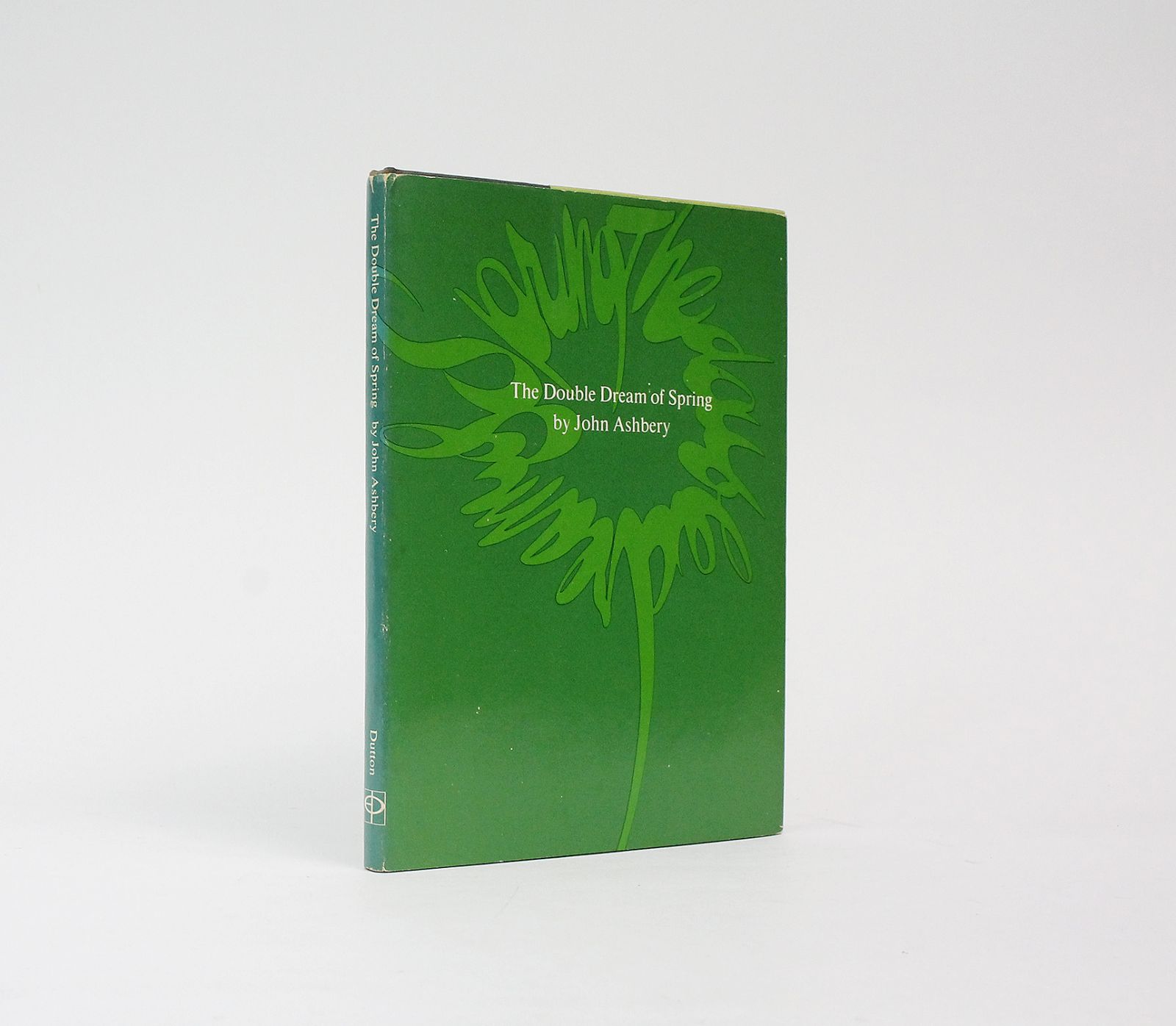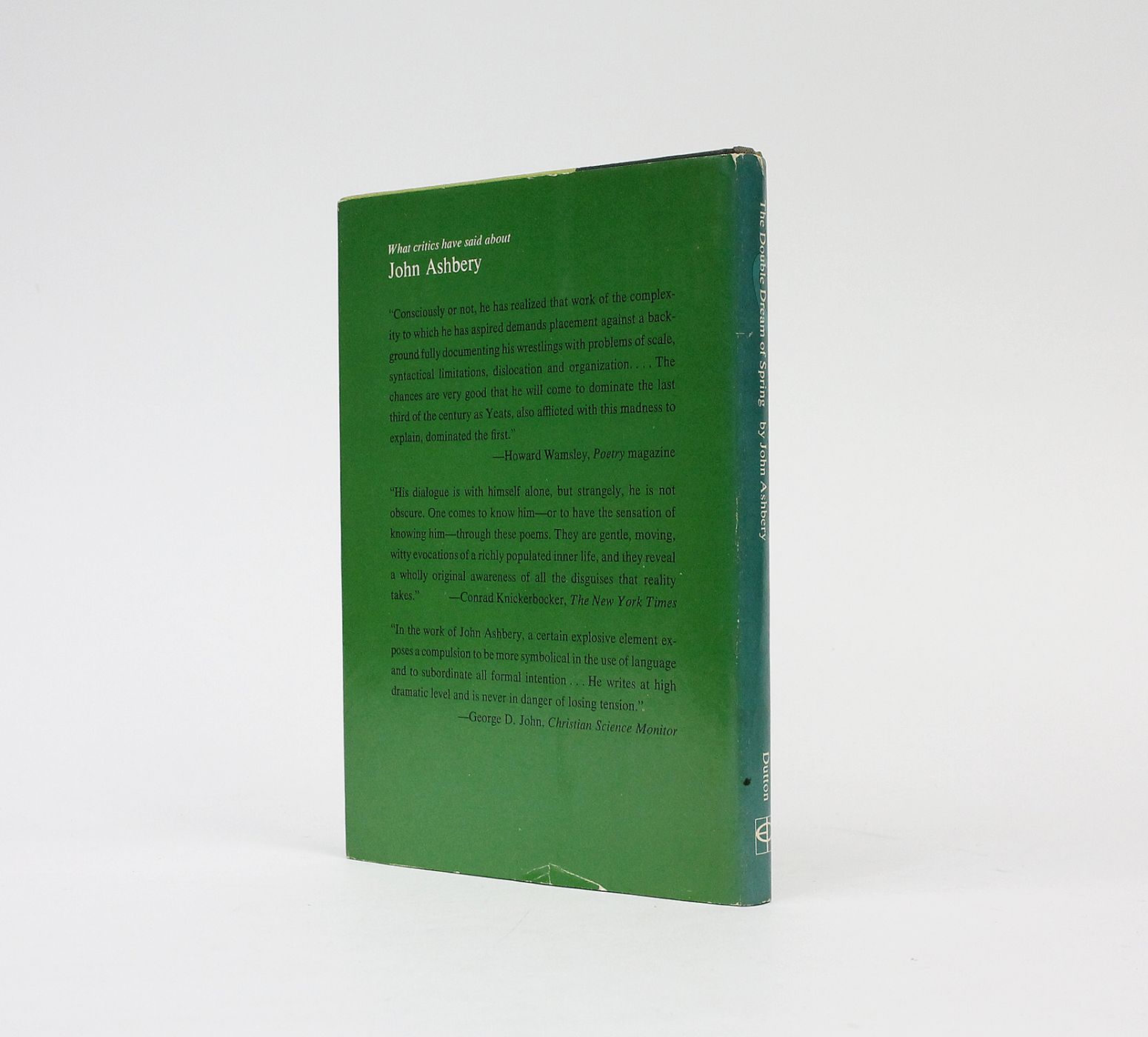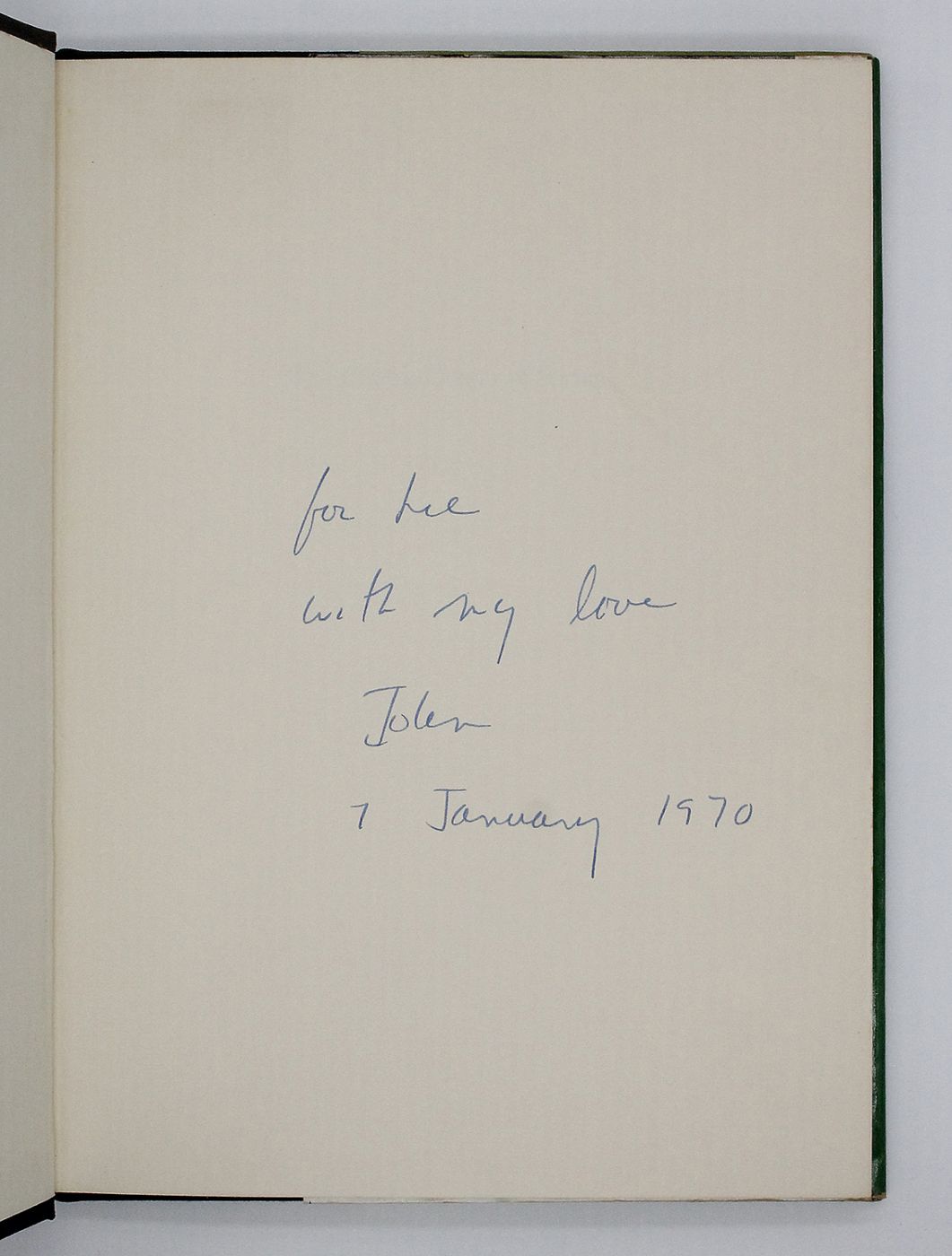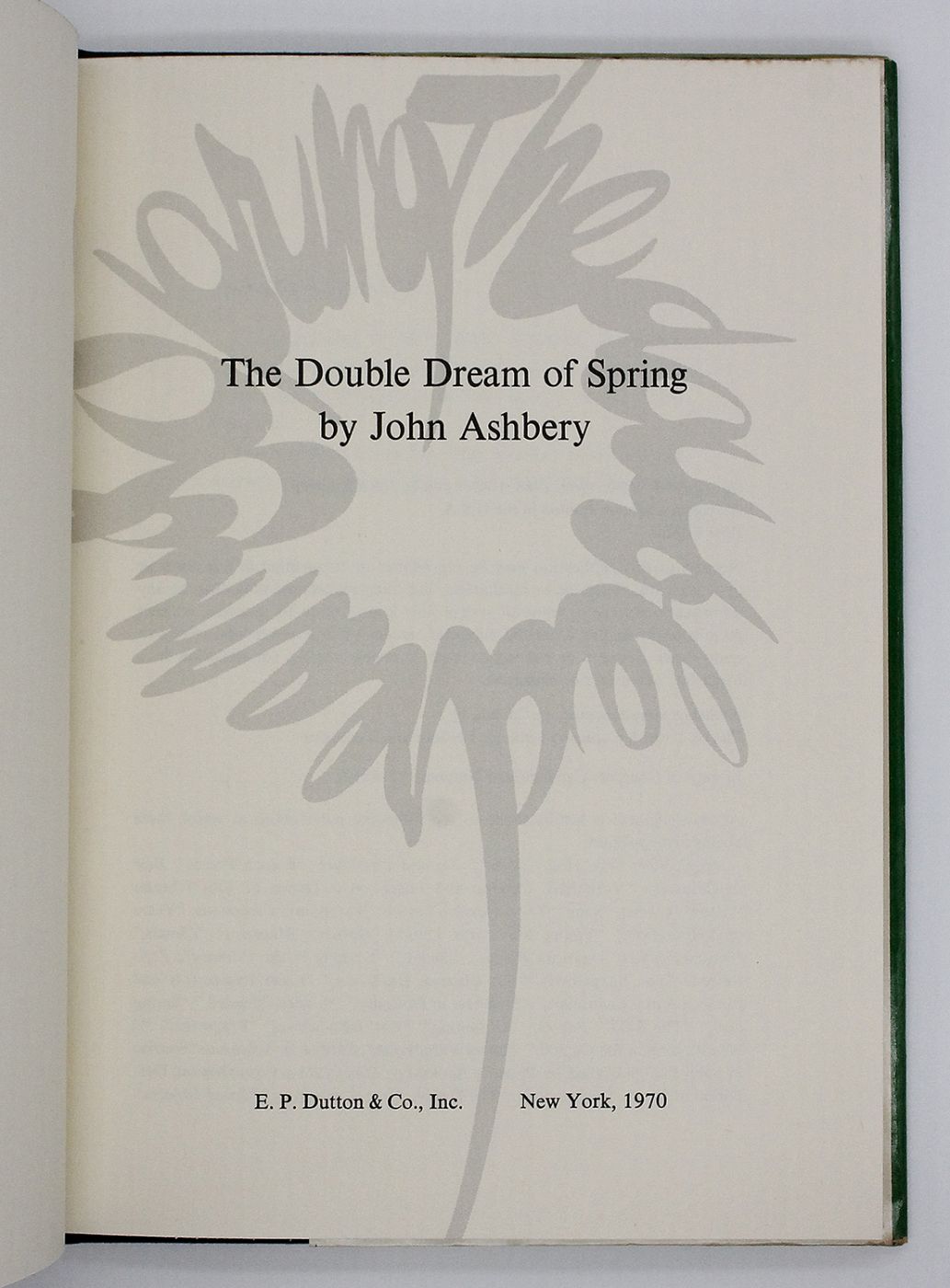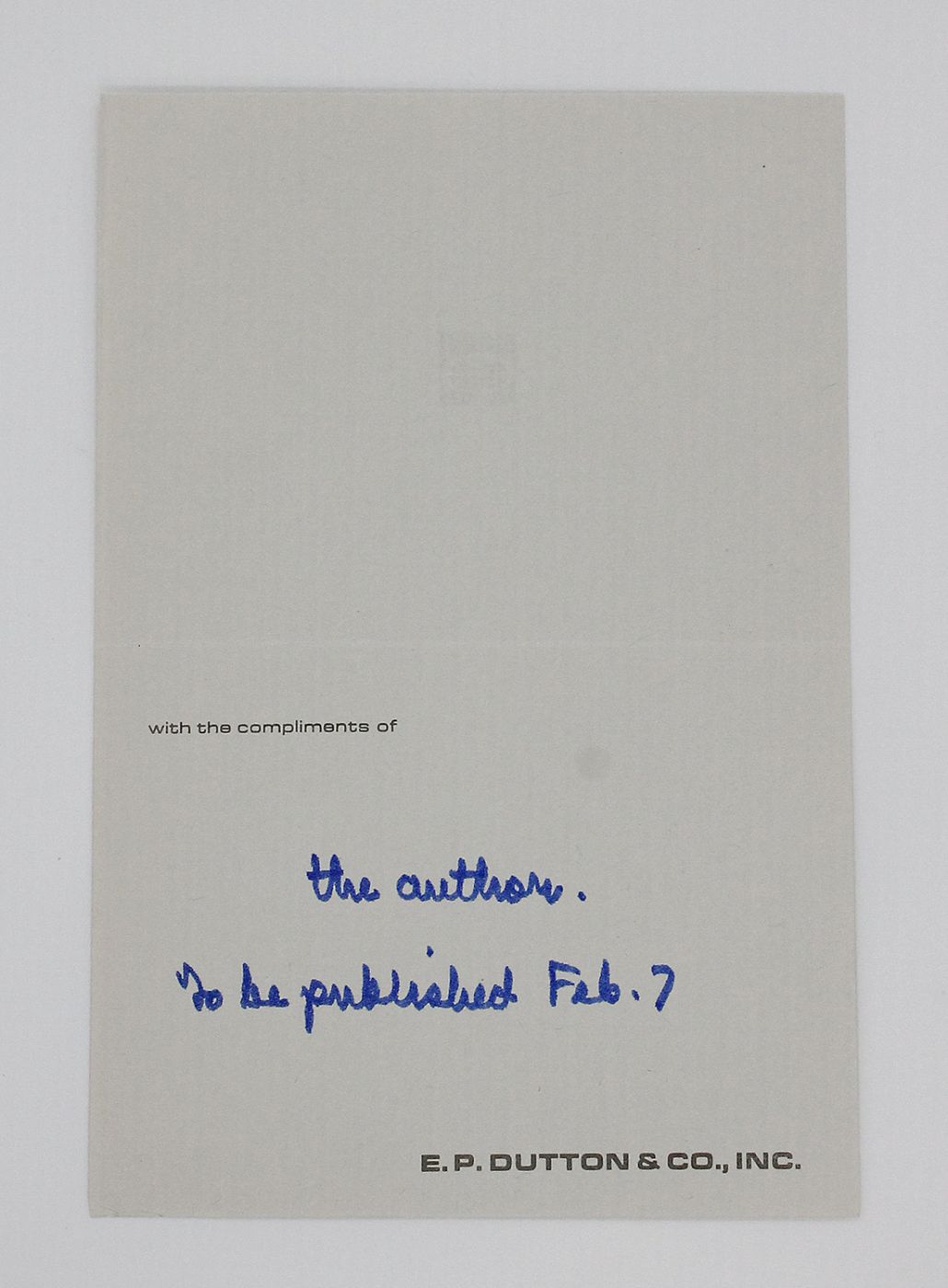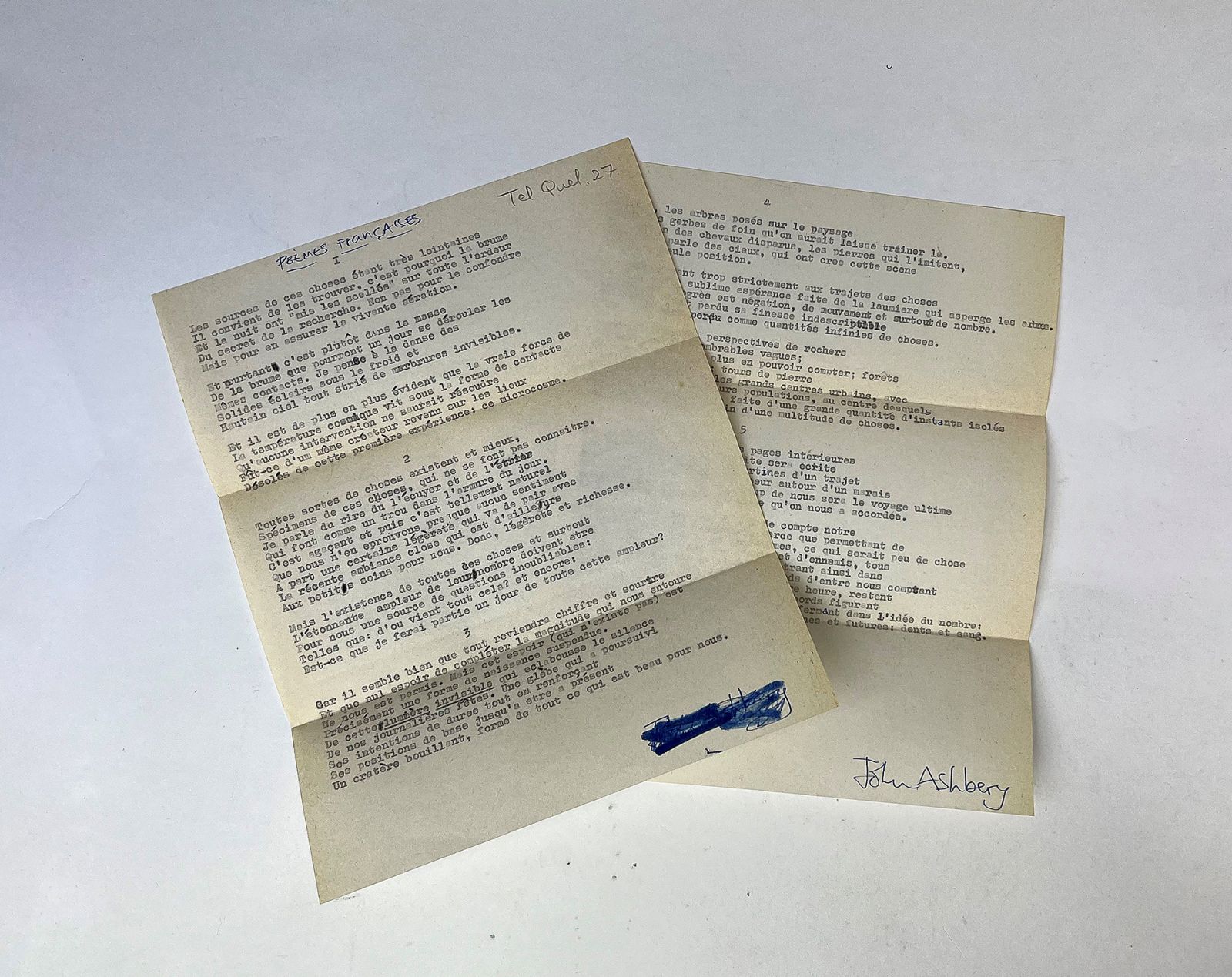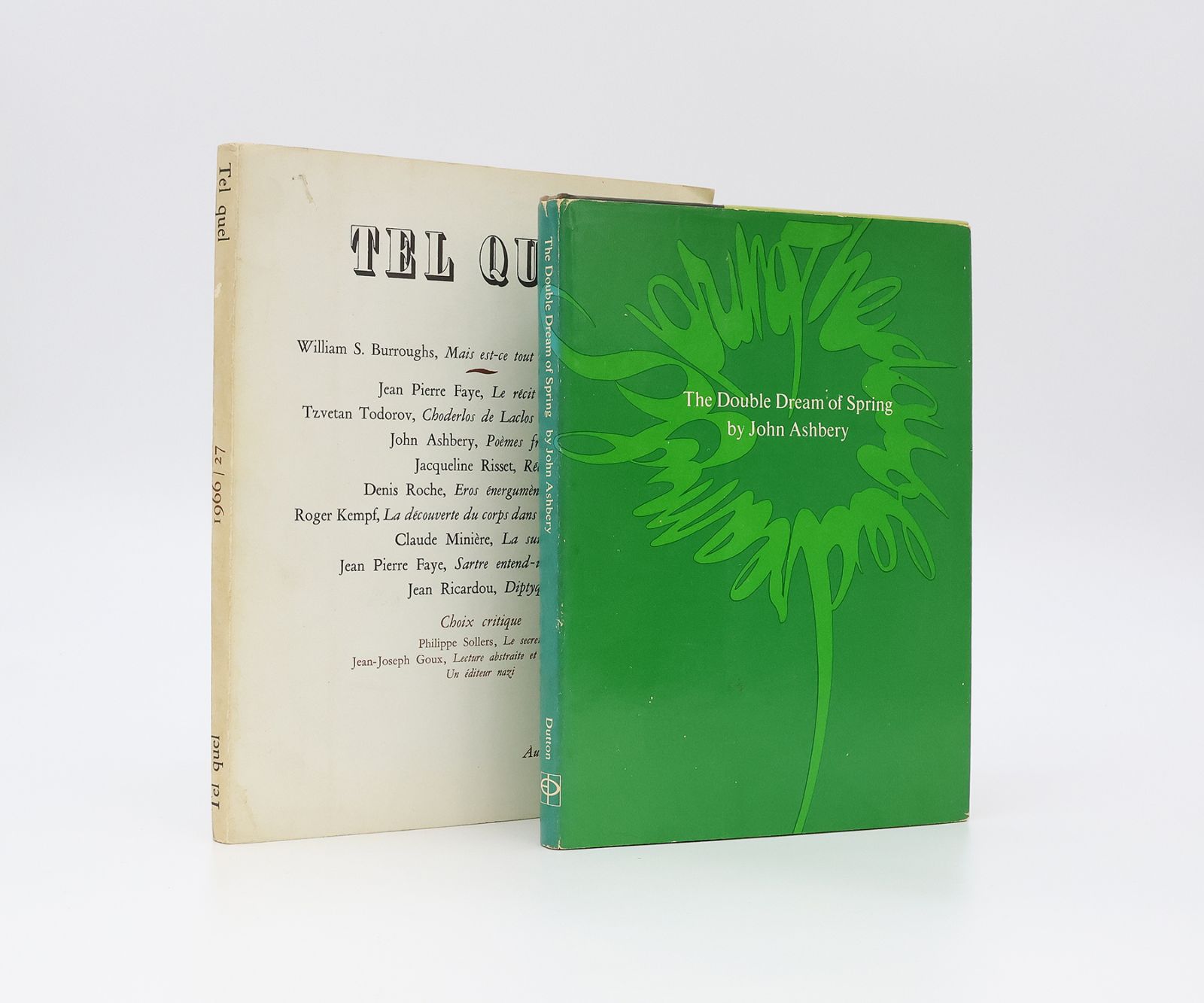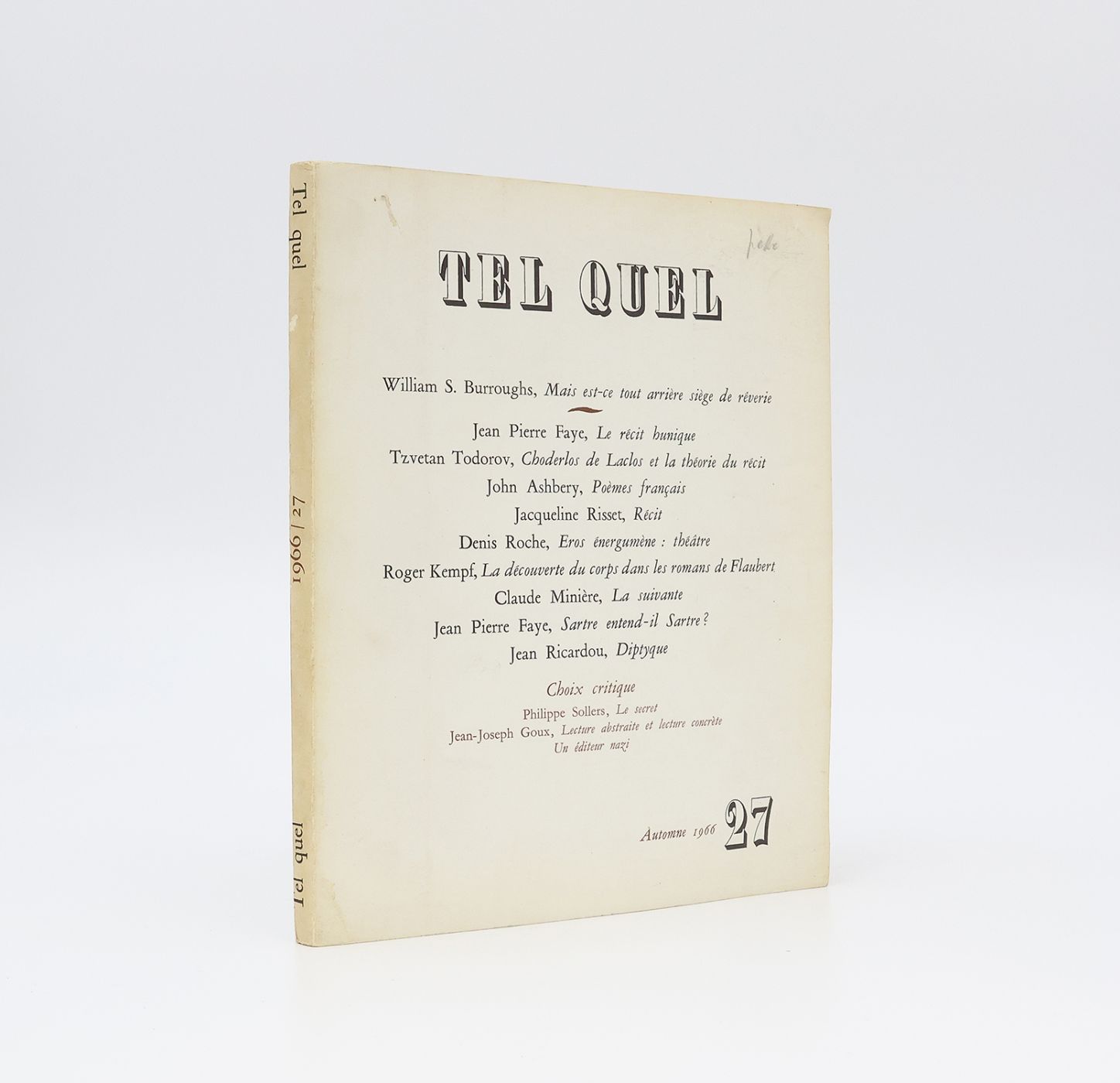THE DOUBLE DREAM OF SPRING. With a typescript of the five 'Poèmes Françaises', the English versions of which are included in the book; and a copy of Tel Quel, 27 (1966), including the sole appearance in print of the French poems.
First edition, first printing. Inscribed association copy (Lee Harwood's copy) with, loosely laid in, a four page (two leaves) typescript, including manuscript emendations, title, and signature in the poet's hand, of the five 'Poèmes Françaises', the English versions of which are included in the book. Original green paper-covered boards, quarter-bound in black cloth lettered in gilt to the spine, in dustwrapper. A very near fine copy, the binding square and firm, the contents clean throughout. Spotting to the upper edge of the text block. In the clean, bright dustwrapper, lightly rubbed to spine tips and corners. Not price-clipped ($4.95 to the front flap). Also included is a copy of the Autumn 1966 volume of 'Tel Quel' where the French Poems appeared in their original form (their sole appearance in print), the white card wraps lettered in black and brown to front and rear panels. A little dusty with a few small marks, the spine a little darkened, it is otherwise in very good shape indeed, the contents clean throughout. An outstanding association copy of one of Ashbery's greatest collections.
Inscribed by Ashbery in blue ink to the front free endpaper, "For Lee / with my love / John / 7 January 1970". The recipient is the English poet Lee Harwood. Ashbery lived in Paris for most of the 1960s, but the two first met in London. As Harwood recounts: "It was about 1965. [Ashbery] came over from Paris – he was working [...] and writing art columns for the Herald Tribune – and did a reading at the US embassy, and I went along. I was impressed but I wasn't quite sure what was happening there. Then afterwards there was a party and I got to know him there, and after that I went over to stay with him several times in Paris. Then he had to move back to the States. In the mid- to late 60s I was spending a lot of time going back and forth to New York, and I usually stayed with him. A lovely warm friendship built up between us." The two were, for a while, lovers (Harwood's volume, The Man with Blue Eyes (1966) is a chronicle of sorts of the affair the two poets conducted between 1965 and 1966). Although Harwood was the "junior" figure, poetic influence was exerted in both directions, Harwood one of a handful of contemporary English poets that became important to Ashbery (F. T. Prince and Mark Ford being the others examined in Oli Hazzard's monograph, 'John Ashbery and Anglo-American Exchange' [Oxford, 2018]). 'The Double Dream of Spring', Ashbery's fourth full collection, occupies a special place among the poet's books, including some of his finest poems, among them 'Soonest Mended', 'For John Clare', and the extended concluding 'Fragment'. The latter, written between December 1964 and March 1965, is cast in fifty ten-line 'dizains' (after Maurice Sceve's huge 449 dizain 'Délie' of 1544): part love poem, part elegy for the poet's recently deceased father, it is one of the most beautiful poems of the late twentieth century. As the note at the end of the volume explains, the sequence of five 'French Poems' (pp. 37-40) were originally written by Ashbery in French after which he translated them into English, "with the idea of avoiding customary word-patterns and associations". The French versions were published in the Parisian journal 'Tel Quel' in the Autumn of 1966. Curiously, the note accompanying the printed French versions speaks of the poet "Playing with two languages within a single work, John Ashbery [...] establish[ing] here, between himself and the poem, a distance which allows him to discover and to make use of that which is foreign in the language familiar to him, and that which is familiar to him in the foreign language" (translation by Sara Lundquist), both notes supporting Lundquist's seeing the poems "as a locus of Ashbery's complex linguistic self-consciousness", the poetry existing somewhere between the two languages. Ashbery composed at the typewriter and loosely laid into Harwood's copy of 'The Double Dream of Spring' is the/a typescript of the original five 'Poèmes Françaises', laid out across two single-sided sheets, titled and signed by the author in blue ink; Ashbery's signature appears in the same blue ink at the foot of both pages, the first scribbled out (perhaps because it comes in the middle of the sequence). There are a number of corrections, deletions and emendations, both typed and in manuscript (the latter including the accents unavailable to a typewriter). 'Tel Quel. 27', the 1966 volume of the French literary journal in which the French versions appeared in print for the first and only time, is written in pencil (also in the poet's hand) at the head of the first page. A copy of the the journal is included with the book. The typescript was evidently given to Harwood by Ashbery. Although the English versions in the book are dedicated to the artist Rodrigo Moynihan and his (second) wife, Anne, it is likely that the French poems, written during the period when the two poets were at their closest, are tacitly dedicated to Harwood. (Sara L. Lundquist, Légèreté et Richesse: John Ashbery's English "French Poems", 'Contemporary Literature', Autumn 1991; Kermani A17)
Stock code: 23534
£1,350
Published:
Category
Modern First EditionsSigned / Inscribed
Literature
Manuscripts


